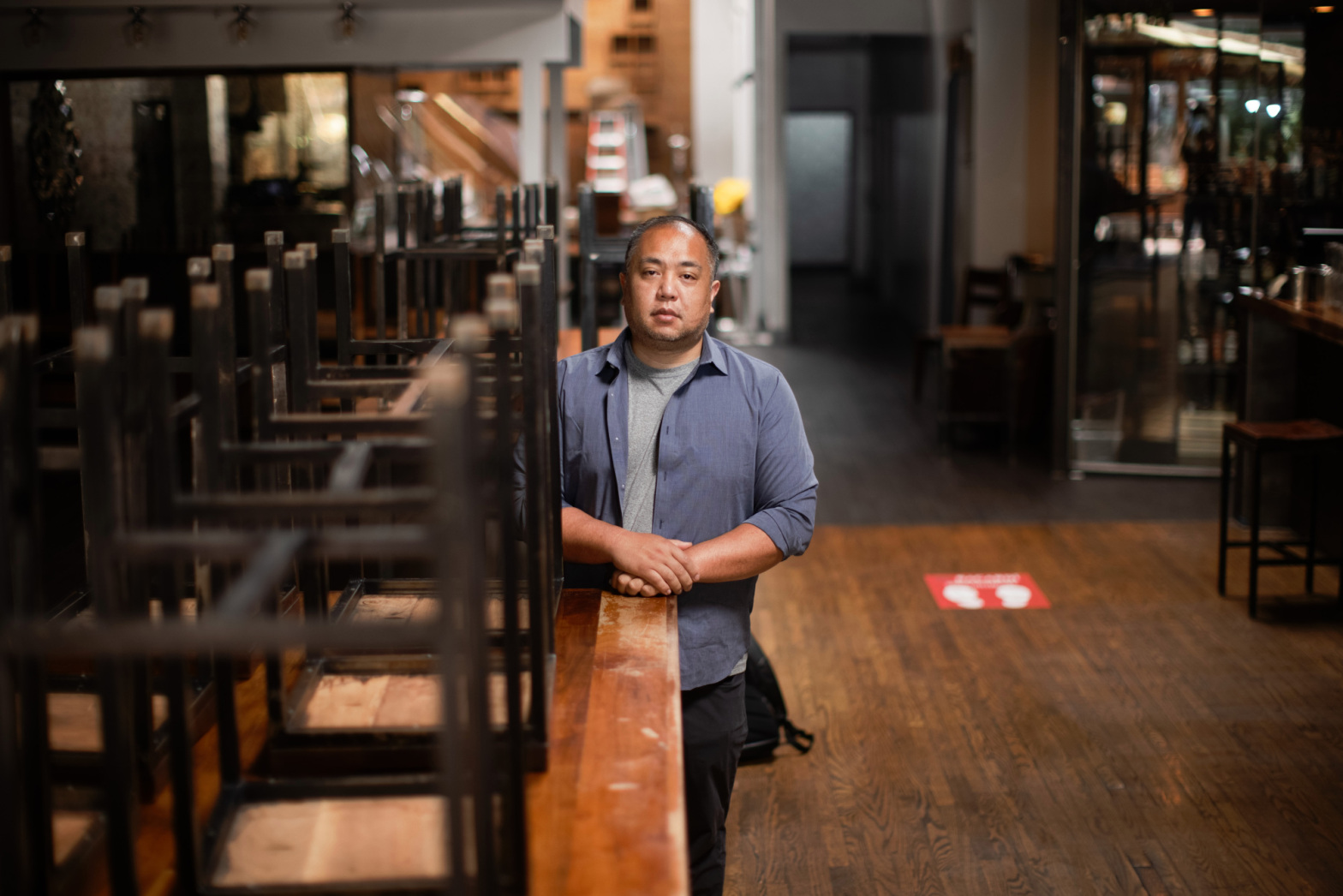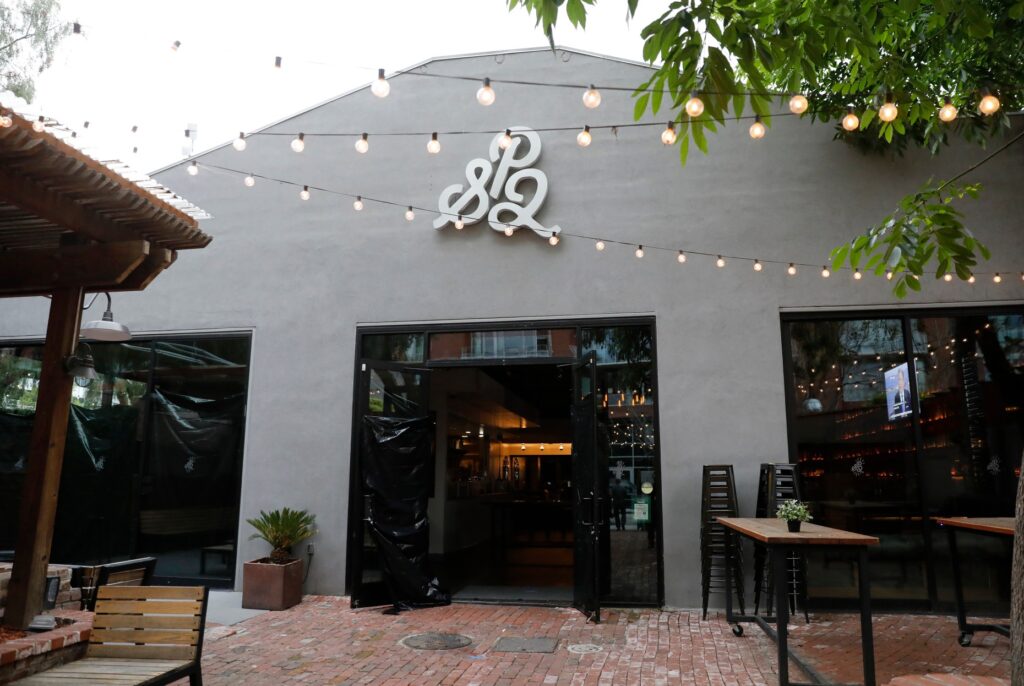How Santa Clara County’s $6 million COVID fining frenzy played out ‘in court’

Anjani Sircar was on the hot seat, facing an attorney intent on discrediting a recent enforcement action. But this wasn’t a trial, and Sircar isn’t a police officer. She’s a type more particular to Santa Clara County: a COVID cop.
Sircar was trying to explain to a hearing officer why she hit SP2, a posh downtown San Jose restaurant, with a $7,500 fine four months earlier for violating public health orders meant to curb the spread of COVID-19.
But Sircar’s explanation began to crumble when she had to admit she never measured the distance between tables nor snapped a quick photo to prove they were closer than 10 feet apart. The photos she submitted as evidence of a social distancing violation were from the restaurant’s own website, shot long before the pandemic.
“You believe these are an accurate representation of what you observed on October 23?,” the restaurant’s attorney asked her.
“Not accurate but similar,” she replied.
A few weeks later, county hearing officer Sanford Kingsley tossed out all seven citations Sircar levied against SP2, saying she used a vague standard to back up one claim and failed to prove the others.
It was only the latest in a series of developments raising questions about the zealous nature of Santa Clara County’s enforcement mechanism for coronavirus-related health orders — a mechanism aimed at businesses that have already suffered mightily from pandemic closures.
Two months ago, this news organization revealed that the county has fined approximately 400 businesses a total of $6 million — dwarfing the enforcement activity of any other county in the region.
Now, a new look at the system shows that more than a quarter of those businesses have challenged their fines under the county’s appeal process, but still haven’t been granted a day “in court.”
Others were swayed by the county to sign “compliance agreements” in which they promised to follow the health orders and not to challenge the county’s rules in exchange for reduced fines. But of the seven making it through an appeal process that the accused say is stacked in the county’s favor, four have won significant, if not always complete, victories.
Hearing officers in those cases determined the county’s enforcers made unsubstantiated claims, erroneously fined businesses for violations that were immediately remedied or imposed fines that far outweighed the violations committed.
Despite those criticisms, County Counsel James Williams insists the county is being fair to businesses.
“We weren’t required to set that process up,” he said about the appeal system, noting the county could have required businesses to fight the battles in court. “I actually think it’s an example of how we went above and beyond to create a very accessible mechanism for people to have appeals heard.”
Tin Le, co-owner of SP2, doesn’t see it that way after spending money and time to fight his restaurant’s fines.
“There is just too much power resting on a certain person or a certain department for the entire county,” he said. “It’s just sad it even had to get to that point.”
Although the county hasn’t backed off — even siccing its Department of Tax and Collections on some recalcitrant businesses — it is trying to put a more positive spin on the program. Two weeks after this news organization’s April story revealing that Santa Clara County fined businesses 50 times as much as all other Bay Areas counties combined, the Board of Supervisors declared the money should be disbursed as relief grants to small businesses hurt by the pandemic — though not to the ones fined.
Businesses that persist in their appeals find a process that in many ways mirrors a formal court trial — complete with witnesses and attorneys, exhibits presented as evidence and intense cross-examinations.
But there is no jury, and the “judges” — in essence — work for the county. They are attorneys from the County Office of the Hearing Officer, commissioned by County Executive Jeff Smith for $200 an hour to review the fines. Smith also oversees the County Department of Public Health, which employs enforcement officers like Sircar.
The hearing process has its own rules, created by the same bureaucracy that produced the enforcement approach. For example, if a hearing officer decides in one case that a certain enforcement action wasn’t justified, that doesn’t necessarily apply to the same enforcement action in another case. As a result, the appealing business can’t rely on legal precedent that’s commonly accepted in a typical civil trial.
For the seven businesses that have received a full review of their cases, the process dragged out three to five months, during which time they’ve also had to deal with mandated closures and capacity restrictions.
But if the county’s control over the appeals process undermines its objectivity, that hasn’t been apparent in the hearing officers’ rulings, nor in their sharp criticisms of the methods employed by the county’s squad of 50 employees redeployed to enforce COVID health orders.

In the case of SP2, the restaurant owners quickly pursued the appeal process after enforcement officer Sircar declared in late October they had failed to correct seven violations within a 24-hour grace period. She had cited the restaurant for violations such as not properly separating tables, serving parties of more than six people and playing “non-ambient music” so loud patrons had to raise their voices to converse, potentially transmitting virus-containing droplets as they spoke.
In SP2’s defense, the restaurant’s attorneys produced affidavits from employees, submitted photos showing the tables legally distanced and reviewed security footage of Sircar’s inspection.
The county didn’t offer any witnesses to corroborate Sircar’s accusations, relying on the outdated photos from the restaurant’s website of the table layout.
The day before the appeal hearing, county officials informed the restaurant owners they erroneously assessed $1,000 for three sign violations that were immediately corrected and would drop that charge. Then they forged ahead to seek the remaining $7,500.
“We’ve consistently shown that SP2 has made every attempt at compliance and in fact succeeded,” Jeffrey K. Nielsen, the restaurant’s attorney, said during the hearing. “The only consistency that the county has demonstrated is its inability to be consistent with its own guidance.”
None of the county’s claims stuck.
Sircar declined to comment for this story through a spokesperson who said Williams was the only person who could speak about the case.
Williams says he continues to disagree with most of the findings that led to dismissal of fines against SP2 and the other businesses.
“Testimonial evidence, in my opinion, is sufficient and there is nothing in the ordinance that says we have to have photographic evidence,” he said.
SP2 wasn’t the only business vindicated by hearing officers.
Salon Professional Academy, a beauty and cosmetology school in west San Jose, challenged its $3,500 fine for failing to post a sign on its window declaring the maximum number of customers allowed inside.
The school contended it displayed a sign the same day it was dinged by an enforcement officer, yet the original fine of $500 kept increasing daily simply because it failed to submit a compliance statement on the county’s website, as required.
Kingsley found the $3,500 fine “excessive” and reduced it to the original $500, reasoning that because the health officer didn’t return to check on the sign each day, it “was not perceived as an ongoing risk to public health.”
In another case, hearing officer Jonathan Jackel dismissed two mask-related fines against the Saratoga Farmers’ Market, saying that going after the association instead of the individual vendor who violated the rules “defied common sense.”
At La K~Baña Del Tio Tavito, a Mexican restaurant in San Jose’s La Placita Tropicana, county officials last month offered to reduce its fines for half a dozen violations from $58,000 to just $3,700.
But the county is still attempting to collect $1,000 from it for playing “non-ambient” music — a violation tossed out in the SP2 case as too vague to enforce.
To SP2 co-owner Le, that’s a prime example of the county’s “broken” enforcement system.
“We’re the minority because a lot of places don’t have the money to spend on lawyers or the hours to spend fighting this,” he said. “It’s just unfair that these restaurant owners that have been completely impacted by the pandemic and all the shutdowns and guidelines are the people suffering the most.”

